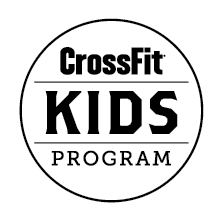Muffintops and Mirrors, a Talk on CrossFit and Body Image
Muffintops and Mirrors, a Talk on Body Image
by Aubrie Beard
In some way or another, everyone struggles with their body image. Whether you’re telling yourself “Oh those 5 donuts yesterday made me feel HUGE” or “When will that eighth ab pop in?!,” or “These lulus do NOT fit like they did last week, #muffintop!” it’s essentially all the same complaint. Although someone else’s body image issues may not be the same caliber as yours, we can all relate to that voice in the back of your mind that says “you are not good enough.” Sometimes, being aware of your body image can promote success. However, I think for many people, obsessing over body image often hinders performance and even worse, it can negatively impact life outside the gym walls.
In my experience, dealing with body image issues is not an easy feat. However, I will say that athletes who train the way we do in the CrossFit community are advantaged in a few ways:
First, our mental strength is continuously growing with every workout we conquer; the only way to overcome negative self-talk is by infiltrating the mind with positive self-talk, which takes a significant amount of mental strength that develops over time throughout countless grueling workouts.
Secondly, our gym and community is packed with positive support systems including coaches, nutritionists, and fellow athletes. If you haven’t experienced this force field of positivity yet, just wait. I guarantee you the time will come when somebody will reach out to you after a hard workout just to tell you how awesome you are or how great you look.
Lastly, it would be very hard for someone to endure workouts like we do and not experience results, either mentally or physically. However, these results are not something we can rely on heavily to make us feel better about the way our bodies look—which is why we all have to start working internally to overcome our deep-rooted struggles with body image.
I have found the following three rules to be especially helpful in my battle with a negative body image. Although they are suggestions and entirely self-created, they are simple, concise, and effective. If you’re someone who is struggling, maybe not even with weight or strength or performance, but purely body image, how you see yourself, how you feel when you look in the mirror, then I challenge you to employ these three simple rules:
1) When you walk into the gym, make it your “safe zone,” free of self-judgment or judgment of others. Make the gym a place where other people can come in and no matter what they look like, or what they are wearing, or how they perform in workouts, they will be encouraged by you; which is something that you want in return, right? If you find this particularly challenging, start off by doling out compliments or encouraging others in their CrossFit journey first; helping others to see their true self is bound to intensify your own positive self-talk.
Once the gym becomes your “safe zone,” there’s no worrying about what others think of your cellulite or stretch marks, there’s no judgment of those around you and their booty shorts. Remember, we all go to the gym for one reason: To be healthy, fit, and functional.
2) Accept who you are today. Better or worse, you are not who you were yesterday, last week, 6 months ago, or 2 years ago. Sure, you may have been twenty pounds lighter and had a six-pack two years ago, or maybe your max back squat was ten pounds heavier a month ago, but how does that help you on this very day? Acknowledge who you are
today, accept it, and get to work – If you do this, you’re untouchable. Nothing can ruin you, not even a negative comment from another athlete, not even that voice inside your head. On this very day, you’re here to own a workout and make yourself better for tomorrow.
3) Journal everything. Every day. I have seen athletes in the gym be very diligent about journaling their daily workouts, which is very important in tracking progress and making #gainz. But what about tracking food, tracking sleep, tracking emotions and body image, tracking overall health? If you do this for one month, you will identify unhealthy food that you ate, the sleep you didn’t get, the stress you were under, and the workouts you missed. Case in point: Start paying attention to your body; not just your PRs or your workouts, but your physical being. Know what your body needs and what it doesn’t need to feel good, what makes you tick, and what makes you mentally strong enough to overcome negative self-talk.



